Bc part of what I study is the left and Muslims, I think Qadhi etc. asserting Islam is neither left or right deflects from the point: People's understandings of Islam do guide their politics, but political choices – power relations – also shape interpretation of religion. 🧵 1/
https://twitter.com/YasirQadhi/status/1668023872933732353
There has always been a “subterranean” (underground) tradition in Islam and among Muslims, which has confronted the concentration of wealth and the domination of some over others, and which has struggled against a tradition more amenable to wealth and power. Both claim Islam. 2/
An interesting and early example is the case of the companion Abu Dharr al Ghifari (ra) who was one of the earliest accepters of Islam, and apparently coined the use of the term “As salamu alaikum” in the Muslim context, vs. Muawiyah (ra), who was then governor of Syria. 3/
(I base my narration from the linked Urdu article by Hafiz Muhammad Siddique and Muhammad Afzal: -- which references Sunni views. Adil Salahi disputes some details of this common understanding here: https://t.co/9NU5Y16ag8) 4/harf-o-sukhan.com/index.php/Harf…
arabnews.com/node/236259
arabnews.com/node/236259
Abu Dharr protested against the concentration of wealth, which had increased during the caliphate of Uthman al-Ghani (ra), arguing that wealth needed to be circulated to the poor and the marginalized. In Syria he also opposed Muawiyah building a palace from public funds. 5/
Abu Dharr cited the Qur’an (9:34-5) in his support, but Muawiyah argued this verse only applies to the People of the Book (Christians and Jews) and not to Muslims. Muawiyah felt Abu Dharr was a destabilizing influence so Abu Dharr went (was sent?) to Madinah. 6/ 
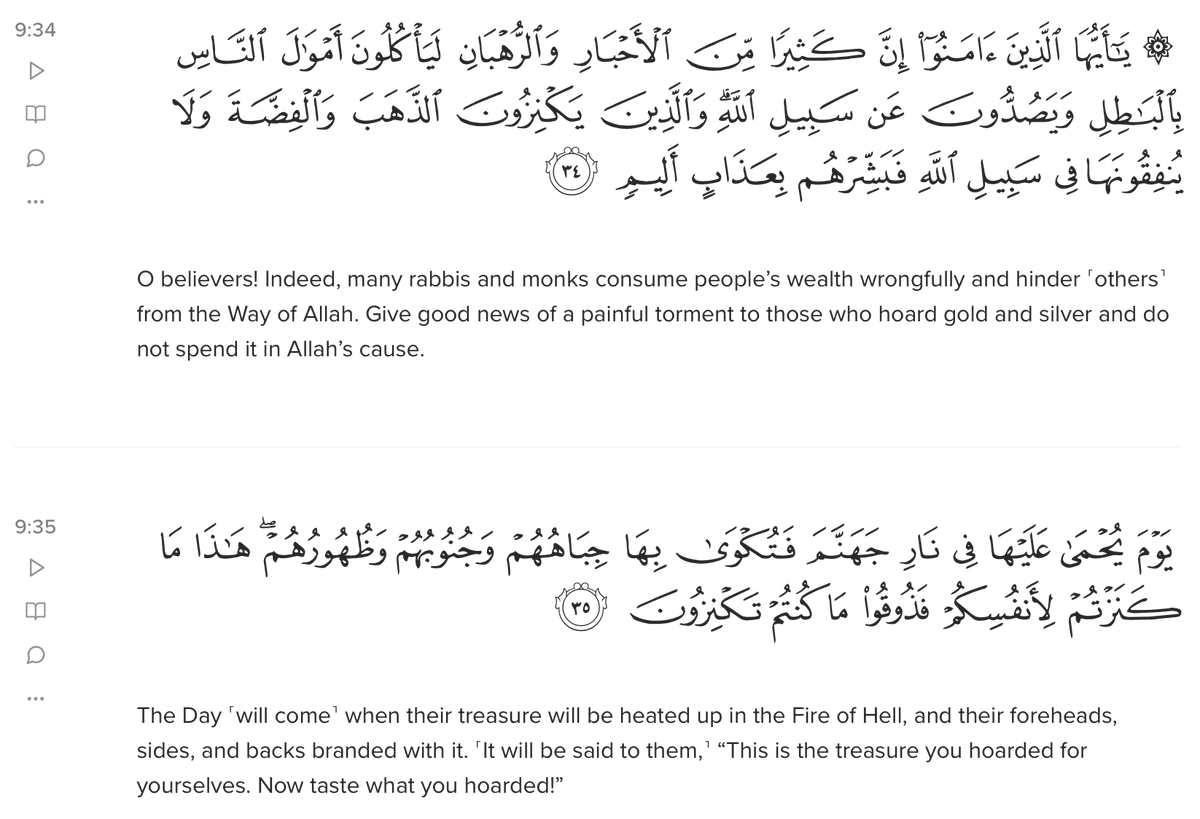
Here the Caliph Uthman al-Ghani (ra) had Ka’b bin Ahbar (ra) come, who appears to have argued that the only binding constraint on the concentration of wealth was payment of zakah. Abu Dharr very animatedly disagreed with them both. Some say he struck Ka’b with a staff. 7/
Then Abu Dharr was exiled, or went of his own will, to Rabadhah, where he eventually died. Siddique and Afzal argue that Abu Dharr was not ignorant of zakah or sadaqah, rather he argued these mechanisms were insufficient to address the disparity and decadence in society. 8/
It would appear then that Abu Dharr had a “subterranean” interpretation of the Qur’an as opposed to Muawiyah and others. They interpreted Islam very differently based on their political dispositions and their attitude to wealth and power. We can see this in many many cases. 9/
Egyptian scholar Abd al-Halim Abu Shuqqah implies that unequal gender relations have long distorted scholarly interpretation: “I was surprised to find numerous practical hadiths that directly relate to women & the interaction between man & woman in different life situations. 10/ 
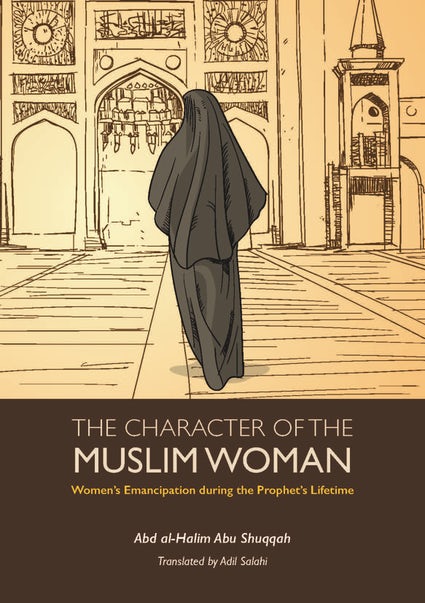
“My surprise was due to the fact that these hadiths were widely different from my own understanding up to that time and the policy I applied in my own life. Indeed, they were different from what was understood and implemented by all Muslim groups I came into contact with….” 11/
More: “I was often shocked to find some highly respectable scholars, past and present, expressing views [on the status of women] that are in conflict with authentic statements made by the Prophet.” Male domination appears to have long shaped how scholars interpret Islam. 12/
On slavery Abdul Sheriff argues, “Around 800 CE there was a noticeable shift from the more humanistic sentiments in the Quran & the hadith to a more commercial & punitive approach, as slaves began to be used increasingly as soldiers, entertainers, & … laborers. 13/
“Whereas the Quran and hadith recognized no distinction between Arab and non-Arabs in Islam, a judgment given by the second Caliph Umar was invoked to forbid the keeping of a male Arab in slavery as a pre-Islamic practice….” 14/ muse.jhu.edu/pub/4/article/…
Also, see @jonathanacbrown on contemporary scholars, those who “tend to be either very conservative themselves or to be speaking in conservative settings” are often “uncomfortable acknowledging any compelling moral good in abolishing slavery….” 15/ 
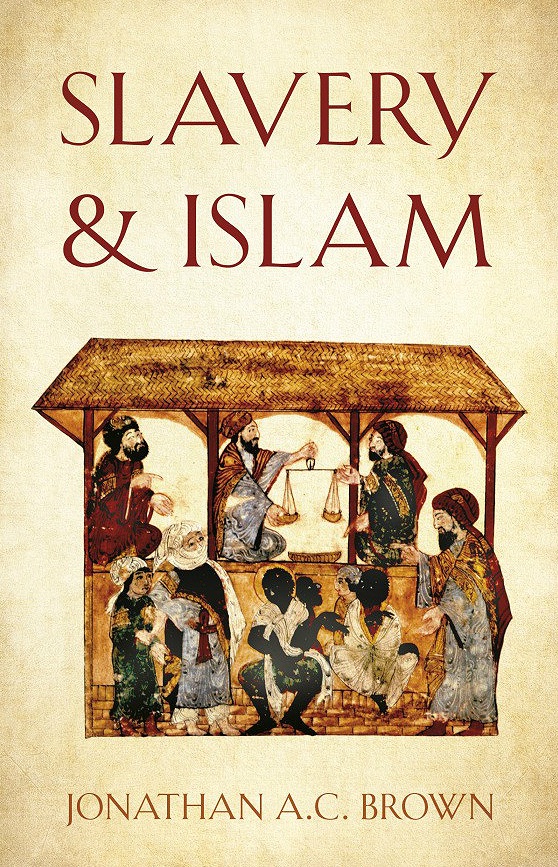
These aren’t simply historical or abstract questions. In his lecture Qadhi rightly condemns colonialism, but has little to say on its consequences. For example, unequal distribution of land in countries like Pakistan has roots in both pre-colonial and colonial oppression. 16/
This unequal order is the basis of much of Pakistan’s dysfunction. Some of its worst aspects include unfree labour, a kind of modern-day slavery. Sharecroppers and tenants I've met in Sindh also often lack political freedoms. That's just one of the many issues re: land. 17/
The subterranean tradition in Islam has advocated against such inequality long before the modern left took birth in Europe. Consider Sufi Shah Inayat of Sindh in the 1700s who argued “The one who tills shall eat” and organized followers to farm and live collectively. 18/
But other Islamic leaders, who managed large areas of land for maintenance of religious sites, resembled landlords in extracting surpluses from followers vs. farming and distributing collectively. They mobilized political power to massacre Sufi Shah Inayat and his followers. 19/
Here are a couple of accounts of Sufi Shah Inayat and the peasant movement he led:
https://t.co/Pwx5c7Fizq 20/tehqeeqat.com/downloadpdf/34…
studocu.com/row/document/s…
https://t.co/Pwx5c7Fizq 20/tehqeeqat.com/downloadpdf/34…
studocu.com/row/document/s…
Consider the Deobandi “Mufti of the Frontier” Abdur Rahim Popalzai, who from 1920s to death in 1944 actively fought against landlords & colonial rule. For him, land redistribution was key to decolonization & he was an avowed revolutionary socialist. 21/ https://t.co/OGnLyLdiQMallamapopalzai.com

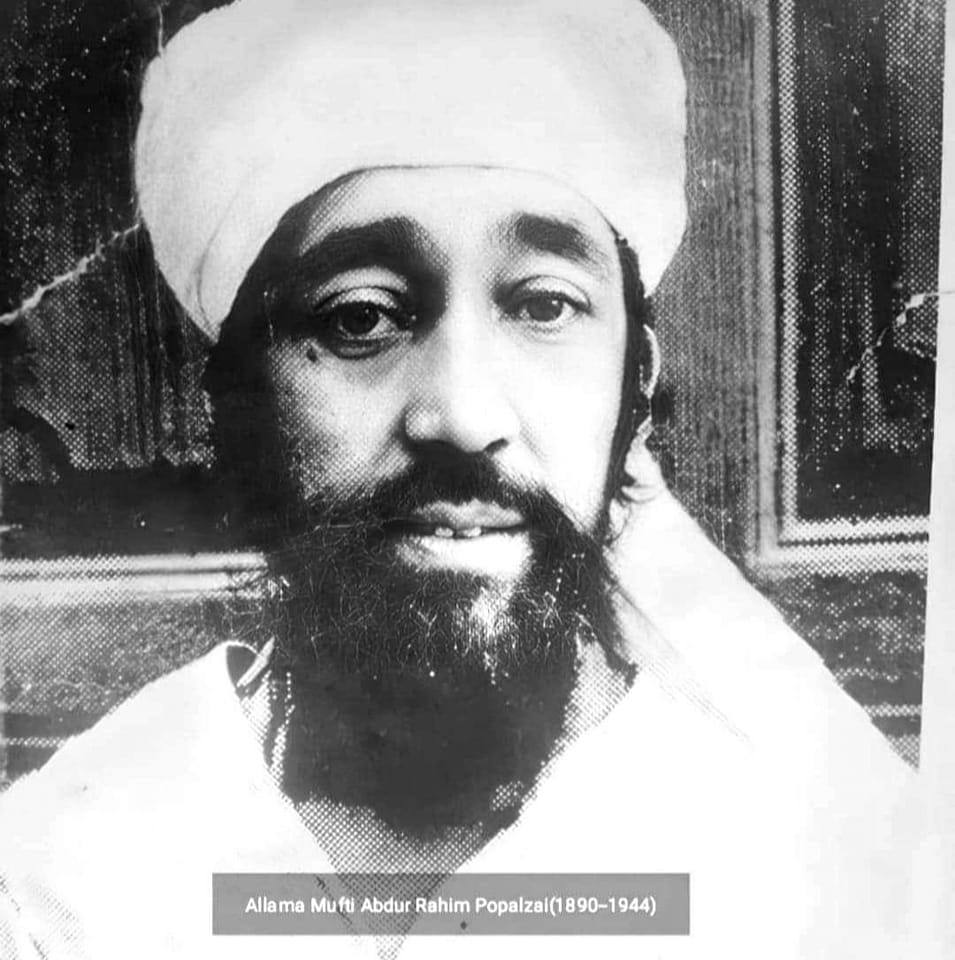
Or consider @kudos4nemo writing on Deoband trained "Mao-lana" Bhashani of Pakistan and then Bangladesh, who was one of the most prominent leaders of workers and peasants throughout both wings of the country before it split up. Totally pro-land reform. 22/ jamhoor.org/read/2018/5/25…
Similarly, in the 1960s-70s the scholar Maulana Muhammad Sadiq, following Popalzai, was part of the revolutionary socialist Mazdoor Kisan Party, which literally fought landlords in the North-West Frontier Province (now Khyber Pakhtunkhwa). He was assassinated in 1974. 23/ 
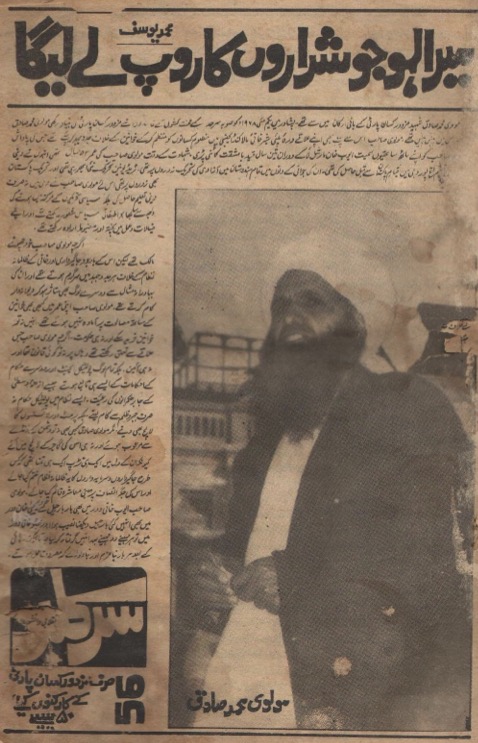
In contrast, consider Islamic defences of status quo. After 1977 military coup, general Zia ul-Haq appointed a Federal Shariat Court, which at first ruled that state-imposed ceilings on landholdings (uncompensated land redistribution) were consistent with Islamic principles. 24/
But then they appointed an appellate bench led by Taqi Usmani which ruled in 1989 that state-imposed ceilings on landholdings were against Islamic principles. They knew they were effectively supporting capitalists and landed elites at the expense of workers and peasants. 25/
And remember, the defence of individual ownership of private property above considerations of historical and contemporary social justice is an eminently liberal and conservative notion, though there are many liberals who support land redistribution from economic perspectives. 26/
As the examples of Popalzai and many socialist/communist ulema show, the relationship of Muslims or Islam and the modern left began not long after the latter’s birth. Even in the US, there is no unitary Muslim identity that only began to engage the left after 9/11. 27/ 
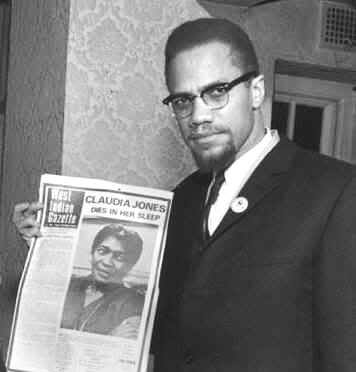
Islam may well be neither right or left but its interpretation and jurisprudence never are. Interpretation in Islam can be either right or left depending on the issue being dealt with and who is wielding the pen and, more often, who is wielding the sword and/or wealth. 28/
The discourse of Islam being beyond left or right is an easy way to bring in unexamined or to present as above scrutiny one’s own political views, which depend on class position, ideological outlook, historical moment, & too often an intensely toxic and fragile masculinity. 29/
One’s interpretation of Islam can serve the purpose of achieving greater equality or of blocking it. The question is not which side is Islam on, because the interpretation of Islam will rarely be unambiguous, the question is which side is the interpreter on? 30/
• • •
Missing some Tweet in this thread? You can try to
force a refresh

 Read on Twitter
Read on Twitter



